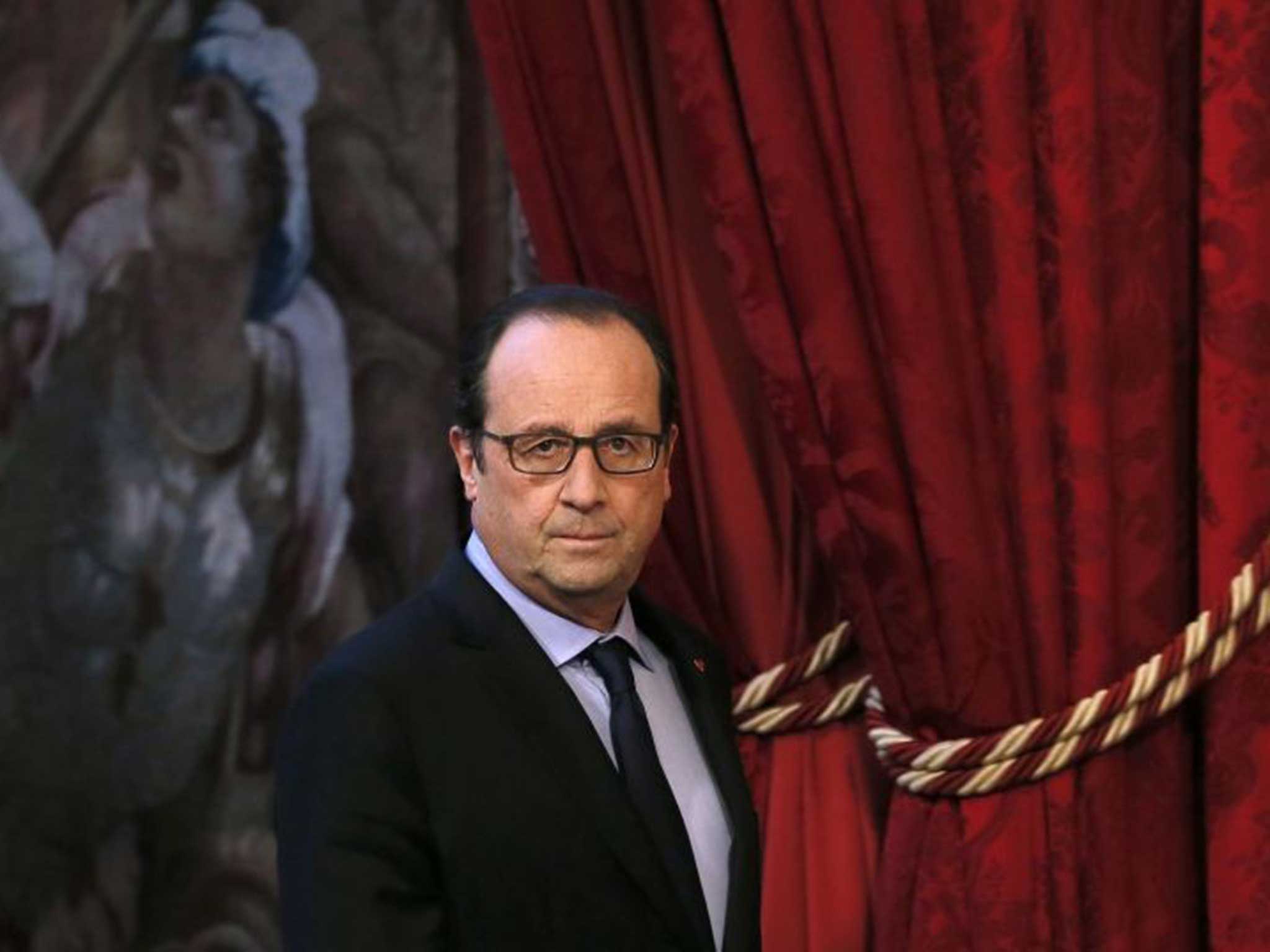President François Hollande finds third way out of the euthanasia stalemate
He accepted a compromise put forward by a parliamentary investigation

Terminally ill and suffering patients in France should be put to sleep with “deep sedation” until their death, President François Hollande suggested yesterday.
He accepted a compromise put forward by a parliamentary investigation created to clarify the legal, and moral, boundaries between compassion and murder. A draft law will be framed next month, which will try to avoid loaded terms such as euthanasia or assisted suicide.
In certain circumstances, dying patients, or their doctors and families, could agree to “deep, continuous sedation until death”, Mr Hollande said. Seriously ill patients could also make binding declarations that their lives should not be prolonged indefinitely.
The proposed law is an attempt to resolve an anguished national debate on euthanasia following a series of contradictory rulings by the French courts. The moral and legal issues will be debated in parliament next month before the wording of the draft law is finalised.
President Hollande said that the final text should be “balanced and reasonable” and recognise that everyone has a “right to die with dignity”. Deep sedation would only be used if a lucid, dying patient requested it or if doctors and relatives agreed that it was the correct treatment for a non-lucid suffering, patient with a short time to live.
Supporters of the kind of right-to-die laws which already exist in Switzerland and Belgium rejected the proposals as too vague. Radical Catholics, and some doctors, said that “deep sedation” was simply a disguised form of euthanasia. Other doctors welcomed the proposals as an overdue recognition and legalisation of what already happens in many hospitals or hospices.
The two parliamentarians who drew up the report Alain Claeys (Socialist) and Jean Leonetti (Centre-right) said that “profound sedation” involved injecting a dying patient with a cocktail of drugs, which created a “state of unconsciousness”.
The use of the drugs was not, in itself lethal and could not be considered as “murder”, they said.
Subscribe to Independent Premium to bookmark this article
Want to bookmark your favourite articles and stories to read or reference later? Start your Independent Premium subscription today.

Join our commenting forum
Join thought-provoking conversations, follow other Independent readers and see their replies